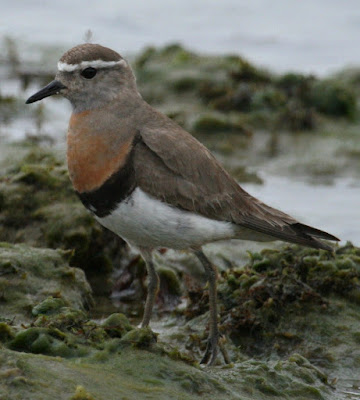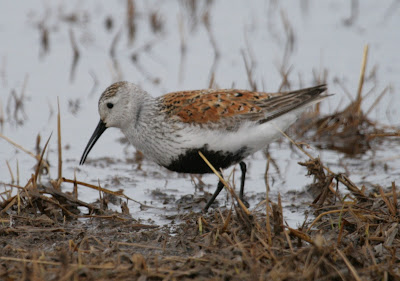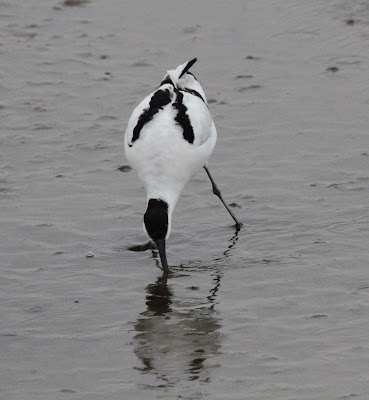DANK, DULL, DRENCHED, DREICH, DIRE and that's only me!
So maybe a good job we still have the second and final part of The Waders in the locker which starts with another strange and interesting family group the PHALAROPEs.
of which there are but 3 members with the
GREY PHALAROPE,
as we call them, rarely being seen in Great Britain in any other plumage than that shown above and being the most common to visit our own shores. However, the American's usually seeing them in a different light most usually in breeding plumage, quite rightly refer to them as
GREY PHALAROPE,
as we call them, rarely being seen in Great Britain in any other plumage than that shown above and being the most common to visit our own shores. However, the American's usually seeing them in a different light most usually in breeding plumage, quite rightly refer to them as
RED PHALAROPE
The second on the 'scarcity table' is the
The second on the 'scarcity table' is the
RED-NECKED PHALAROPE
followed by the most uncommon (rare in GB) of them all
followed by the most uncommon (rare in GB) of them all
WILSON'S PHALAROPE
which have been observed in the foothills of the Andeas in their many thousands!
Collectively, they are all just as happy on fresh water as they are on the sea but have a most bizarre method of hunting. Spinning on either surface like a 'top' a vortex is formed below into which invertibrates are dragged and slowly forced to the surface where the birds pick them off willy-nilly!
which have been observed in the foothills of the Andeas in their many thousands!
Collectively, they are all just as happy on fresh water as they are on the sea but have a most bizarre method of hunting. Spinning on either surface like a 'top' a vortex is formed below into which invertibrates are dragged and slowly forced to the surface where the birds pick them off willy-nilly!
First seen, in order from the top Norfolk - 1978, Hampshire - 1977 and Radipole, Weymouth - 1984.WANDERING TATTLER
Galapagos - 2003BLACK-WINGED STILT
Dorset - 1985RUFOUS-CHESTED DOTTEREL
Brazil - 2001BAIRD'S SANDPIPER
Stains Reservour, Surrey - 1983KITTLITZ PLOVER
Madagascar - 2010MEGELANIC OYSTERCATCHER
Falkland Islands - 2007The most spectacular individual DUNLIN ever seen
Galapagos - 2003BLACK-WINGED STILT
Dorset - 1985RUFOUS-CHESTED DOTTEREL
Brazil - 2001BAIRD'S SANDPIPER
Stains Reservour, Surrey - 1983KITTLITZ PLOVER
Madagascar - 2010MEGELANIC OYSTERCATCHER
Falkland Islands - 2007The most spectacular individual DUNLIN ever seen
Darwin, Australia - 2008 BLACKISH OYSTERCATCHER
Falkland Islands - again 2007AUSTRALIAN PRATINCOLE
Alice Springs, Australia - 2008
Falkland Islands - again 2007AUSTRALIAN PRATINCOLE
Alice Springs, Australia - 2008
Surely everyone's favourite local grownAVOCET
along with a contender for one of themost remoteWaders on Planet EarthROCK SANDPIPERPribalof Islands, Bearing Sea, Alaska - 2011
along with a contender for one of themost remoteWaders on Planet EarthROCK SANDPIPERPribalof Islands, Bearing Sea, Alaska - 2011



















